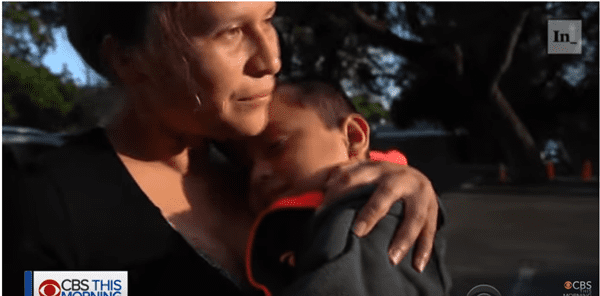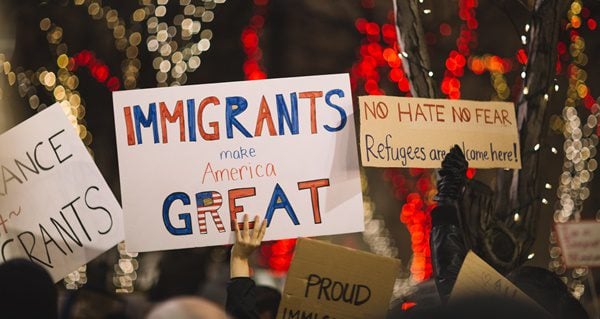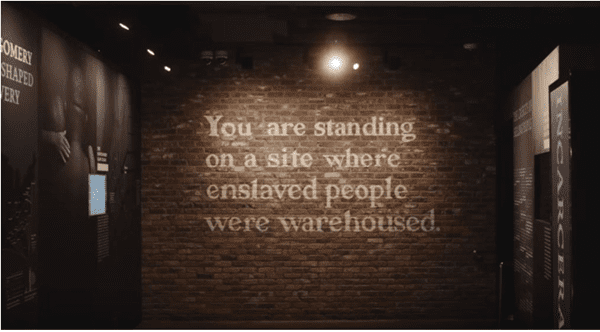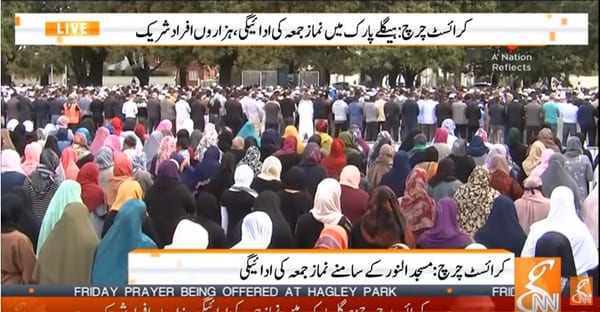Let them in! For mercy’s sake, let them in!
Maybe it’s not that simple. But, as one heartbreaking story bleeds into another as I try to follow ongoing situation unfolding on our southern border, that’s what my heart cries out. Even as some children are being reunited, too slowly, with their parents, the horrors to which our country is subjecting people in desperate need are coming to light. The deadline for returning the youngest 103 children to their parents has come and gone, and 46 children remain “ineligible for return.” Even in the 57 cases where children have been returned, some do not recognize their parents and many are scarred by life-long trauma. And with less than two weeks to go until the deadline for the remaining children – over 2,000 – to be returned, the stories of trauma, harsh detainment conditions, government inadequacy and incompetence will continue to pour in.
Thankfully, national outcry has so far been sustained. We know separating children from families is wrong. We know that family imprisonment is wrong. But reuniting children with parents only to deport them back to the violence and poverty from which they came is also wrong. My concern is that now, as families become reunited, the news cycles will turn away, national attention will focus elsewhere, and these families – some still broken apart, all facing life-long repercussions of their ordeal – will be sent back into the very jaws of violence and poverty from which they fled.
And so my heart continues to cry, “Let them in!”
And I anticipate the pushback from critics. How, some will ask, can we afford such boundless generosity, to open our borders wide and let in everyone?
And it seems to me we should have thought of that before we unleashed such boundless cruelty.
I think the reason there is so much rightful sustained anger against the separation of children from parents is because we can begin to empathize with this horror. Our hearts ache just imagining a child lost or alone. And we don’t have to imagine the tear-stained faces because they’re everywhere. Children separated from everyone they know are not just at the border, but they’ve been shipped throughout the country. These children are here, among us. We see them, and so we rightfully insist that they be shown compassion and returned to their families.
But it’s harder to imagine the violence they are fleeing, so far away. So many of us can imagine a scared, crying child, but it’s harder to imagine fleeing drug cartels or gang violence. It’s hard to imagine long journeys through desert and mountainous terrain on foot, burning in the sun or freezing at night. It’s hard to imagine children rendered homeless or orphaned because of drone and missile strikes half a world away. And vague and blurred as those images may be when they do enter our minds, it is harder still to understand the internal turmoil and devastation inside the minds and bodies of people who have lost just about everything – loved ones, limbs, homes – to violence or poverty. It’s hard to imagine losing hopes and dreams to the sudden fire of bomb blasts or gunfire or the long, slow, gut-wrenching agony of extreme hunger and the grief of being unable to provide for one’s self and family.
And yet this kind of devastation is happening all over the world, and very largely at the hands of United States foreign policy. While our nation does everything it can to shut down borders to people in need, refusing asylum, banning travel, imprisoning and deporting undocumented immigrants and tightening legal immigration, there are no borders on greed and cruelty. We don’t let people come in, but we let our guns, our weapons, our soldiers, our imperialistic ambitions go out all over the world. We have over 800 bases worldwide. Our nation exports the most weapons worldwide, selling them to multiple sides in multiple conflicts for the profit and power of a few. The War on Terror is truly global, spanning 39 percent of the world’s countries. And with the spotlight on immigration, awareness is spreading of the role United States policies have played in squelching democracies and training drug lords in Central America.
US policies sacrifice lives all over the world. Our cries against the unnecessary cruelty of separating families are incomplete if we do not also cry out against the injustices our own nation perpetrates against the nations from which they come. Oceans prevent many of the refugees we make around the world from coming here. But those who can come on land, albeit over treacherous and often deadly terrain, come because they must. As Warsan Shire says, “No one leaves home unless home is the mouth of a shark.”
Our nation questions how we can afford to take in all the refugees who seek shelter in our land. But the real question is, how can we afford to render so many people around the world refugees in the first place?
And that’s why I cry, “Let them in!” Because I know it’s the least we can do, because I know the role the United States has played in fomenting violence and exacerbating poverty. Because when I think of all the nations that take in refugees in regions we have trampled with our militarism and greed and exploitation, I feel a responsibility to make reparations.
I know there is risk involved. I understand the need for vetting. But our default should be welcome, not rejection. We need to open border crossings in urban areas so that migrants do not have to traverse dangerous terrain. We need many more lawyers, judges, translators and social workers processing asylum claims. We need to honor the 1967 Protocol to the Refugee Convention of 1951, which allows refugees to enter our country anywhere as long as they present themselves to authorities as soon as possible. Those who come to us in need should be given the care they require and the opportunity to live their lives in peace.
There may be risk to taking in refugees, but there is infinitely more risk in creating them. To create violence, poverty, and instability worldwide and then refuse refuge to those in need is a strategy not for security, but for insecurity. A policy of waging terror abroad and fomenting fear at home isolates us at a time when the world needs to come together. Global warming – accelerated by consumerism and militarism – is exacerbating refugee crises as inhabitable land space shrinks. If we do not practice hospitality now, we may not find it when or if we need it. And we will not create the bonds of cooperation we need to nurse our dying planet back to health.
Taking in refugees is just one of the many things we need to do. We need to end our wars around the world. We need to shrink our imperial footprint. We need to divest from weapons and invest in community development in our own nation and in the nations we have harmed. We need to make reparations, not just to the migrant communities fleeing lands destroyed by our violence, but to so many communities at home and abroad at whose expense the wealth and power of the United States have been built. Reparations are not just repayments, but the restoration of relationships, tearing down rotten foundations of exploitation and violence and repairing them on firm foundations of cooperation and mutual respect.
Letting in those who flee violence the we have sparked is not generosity. It’s the beginning of reparation. To admit that we owe these reparations and to begin to undertake them would be the beginning of repentance. And repentance would be the beginning of healing.
Image: Screenshot from Youtube: “About 500 undocumented children reunited with parents, official says,” by CBS Morning News












